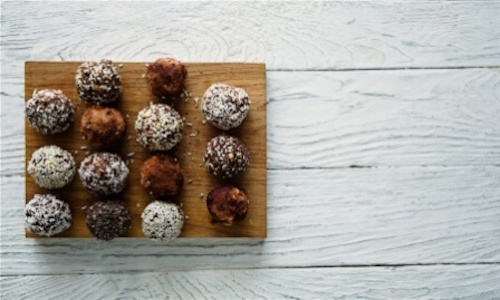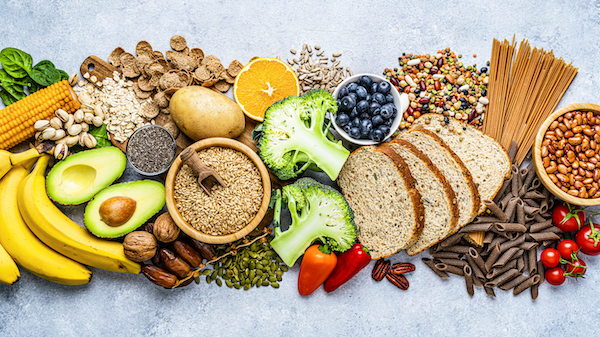Authored by Dr. Sarika Arora, MD
My mother told me that when something seems too good to be true, it usually is. And that’s the case with many “sugar-free” desserts, snacks and drinks. They play on our trust that “sugar-free” means healthy. Because of the nature of sugar alcohols, that just isn’t true.

So here’s the sour truth about this sneaky-sweet sugar substitute.
What is sugar alcohol?
To start with, a “sugar alcohol” is neither a sugar nor an alcohol. Instead, sugar alcohols are plant-based carbohydrates chemically altered to taste sweet. They commonly appear on food labels as sorbitol, mannitol, xylitol, isomalt and hydrogenated starch hydrolysate. Food makers claim that sugar alcohols contain only a fraction of the calories and carbohydrates of normal sweeteners.
Why is sugar alcohol too good to be true?
- Digestive destruction: From damaging gut bacteria to permanently altering your metabolism, synthetic sugar substitutes are the enemy of healthy digestive systems everywhere. That’s why sugar alcohols contribute to bloating, gas and intestinal distress.
- Blood sugar spikes: The nutrition facts label is misleading because it doesn’t accurately reflect the fact that sugar alcohols can still increase glucose levels. Understandably, most people automatically assume that “zero grams of sugar” means “sugar-free” — and therefore these sugar alcohols will have no effect on blood glucose levels. Although many allegedly sugar-free foods claim to have no sugar or calories, they still contain plenty of carbohydrates from starches. These carbohydrates can raise glucose levels in exactly the same way that regular old table sugar would. The kicker? Spikes in blood sugar lead to unnecessary fat storage, which can seriously jeopardize your health.
- Dangerous for diabetics: Such false advertising is especially dangerous for diabetics, whose well-being depends on maintaining stable sugar levels. Even the American Diabetes Association officially recognizes the dangers of sugar alcohols. It warns patients with Type I diabetes that consumption of sugar alcohol is just as dangerous as sucrose given the major carb load that “sugar-free” foods often carry.
Even if you aren’t diabetic, spikes in glucose levels can lead to devastating consequences for your health — including obesity, hormonal imbalance, thyroid dysfunction, heart disease and cavities, among others — so it’s crucial to monitor your sugar intake if you haven’t already made it part of your wellness routine.
7 hidden forms of sugar alcohol
It’s easy to see that sugar alcohols are a threat to your well-being. But it’s a bit more difficult to find them in your foods. They are often hidden behind long scientific names like “hydrogenated starch hydrolysates.” Here are the seven major types of sugar alcohol to be wary of while reading ingredient lists:
1. Mannitol is the major culprit when it comes to gas, bloating and diarrhea. It lingers in the small intestine instead of traveling through the digestive system.
2. Xylitol is a derivative of wood that has a similarly negative effect on gastric function. Because, well, the body wasn’t designed to process wood. (Side note: Xylitol is highly toxic to dogs, even in small amounts. Keep processed treats far from Fido.)
3. Maltitol is often added to baked goods and sweet substances like icing. It creates a thick, creamy texture. You can imagine what it can do to your intestines!
4. Hydrogenated starch hydrolysates and sorbitol are corn syrup byproducts and appear in the majority of conventional toothpastes, mouthwashes, sugar-free gums and candies.
5. Erythritol is becoming more common – including the new popular low-calorie ice cream substitutes.
6. Lactitol is a used as a bulk sweetener in many foods and it’s also used as a prescription laxative.
7. Isomalt is yet another sweetener that can cause diarrhea and other digestive issues.
It’s clear that sugar alcohols are too good to be true. But it’s also evident that traditional sucrose is just as bad, if not worse, than sugar alcohols. After all, regular old table sugar is one of the major factors that created our current obesity crisis. If every teaspoon is slowly destroying your health, are the low-calorie benefits really worth the cost? The answer is a resounding no.
My favorite sugar alternatives
While a low-sugar lifestyle is the ultimate goal, sometimes it’s nice to enjoy a little sweetness. Whether you’re boosting your morning coffee or baking a Thanksgiving pie, these are my favorite sugar alternatives:
- Organic honey: With a relatively low glycemic index and allergy-eliminating powers, honey is a delicious way to skip the sucrose. Raw honey also contains beneficial probiotic strains and is antimicrobial and anti-inflammatory. Look for a non-pasteurized, minimally-processed, local product whenever possible.
- 100% maple syrup: Bursting with antioxidants and lower in calories than honey, organic maple syrup is a great addition to just about anything from baked goods to smoothies. Just make sure it doesn’t include any fillers or corn syrup.
- Organic blackstrap molasses: Fun fact: one tablespoon of organic blackstrap molasses has more iron, potassium and calcium than three ounces of red meat — with fewer calories and fat.
Use your intuition and listen to your gut when it comes to feeding your body. If a food product sounds too good to be true, it probably is. If you have to add sugar, reach for one of the organic options listed above. When your health and happiness are thriving, your life will be plenty sweet. No sugar required.
Olofsson TC, Butler E, Markowicz P, Lindholm C, Larsson L, V’squez A. Lactic acid bacterial symbionts in honeybees – an unknown key to honey’s antimicrobial and therapeutic activities. Int Wound J 2016; 13:668–679
 |
You can read more about sugar substitutes and alternatives in The dangers of Splenda and other artificial sweeteners. |









